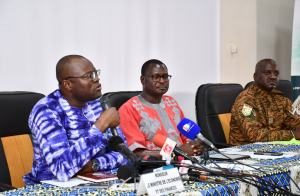Senegal: Political crisis after the postponement of the presidential election. Are we heading for a repeat of the Gabon scenario?

Senegal finds itself in a state of unrest since President Macky Sall’s surprising announcement on February 3, indefinitely postponing the presidential election set for February 25. This decision, swiftly approved by the National Assembly, has triggered protests and a popular uprising, leading to clashes between protesting youth and security forces in Dakar and various cities.
Responding to the call from presidential candidates, hundreds of young people attempted to gather in Dakar’s streets, erecting barricades and setting tires ablaze to decry what the opposition labels an «electoral coup».
Recent developments reveal that in a plenary session on Monday, lawmakers adopted the bill initiated by President Macky Sall, rescheduling the presidential election for December 15, 2024.
This move followed the forceful removal of opposition deputies obstructing the vote by the gendarmerie.
The perceived power grab by President Macky Sall and his deputies, pushing through the decision despite widespread protests, is raising suspicions of a coup in the making.
Many observers of African politics believe that France might be orchestrating events behind the scenes, using Sall’s actions to incite a popular uprising, paving the way for a pro-French Senegalese military intervention resembling a coup.
This echoes the situation in Gabon, where a coup against Ali Bongo was seen more as a French maneuver to retain control than a movement toward genuine sovereignty.
Having already faced challenges in maintaining influence in some sub-regional states, France appears to fear a similar outcome in Senegal after the upcoming presidential election.
The population is urged by opinion leaders to remain calm and exercise restraint, thwarting what is perceived as a project orchestrated in collaboration with the outgoing colonizer.
Stephane FALL











